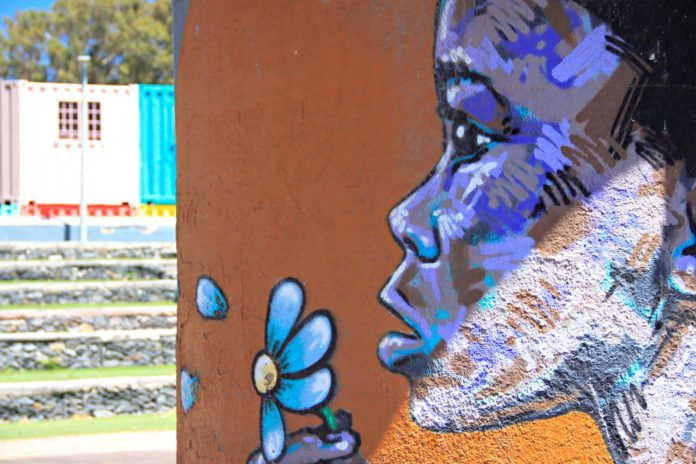When businesses seek for new investment opportunities it hardly ever occurs to us that the township economy could play a positive role and have a financial impact. The township economy is estimated to provide 17% of South Africa’s total employment and contributes 6% to South Africa’s GDP. But the question remains why this is not considered as an investment opportunity for businesses.
The official unemployment figure of 32.9% is alarming and remains one of the most urgent crises facing South Africa given that our socio-economic stability is heavily reliant on employment. Not only will job creation create a more sustainable economy, but it will also broaden the tax base and lessen reliance on government’s social grants. It is estimated that there are 30 to 40 businesses per 1 000 people living in townships, which translates into approximately 800 000 township businesses. But the sad reality is that South Africa doesn’t support the entrepreneurial ecosystem like it deserves and it places South Africa as sixth worse in the world according to a Global Entrepreneurial Monitor report for 2021-2022.
But if other organisations can see the value, why aren’t more businesses investing into township economies? An R80 million investment from philanthropic investors – Bertha Foundation and the Jobs Fund was made to Philippi Village, in the heart of the Cape Flats township of Philippi.
Initiated by the Bertha Foundation and Business Activator NPC Philippi Village offers an integrated and mixed-used economic development space. It is an initiative that provides a community-centred safe space for local residents and businesses. There is something for everyone – this business hub includes 54 affordable office rentals, workshop spaces or conference spaces for small businesses and emerging entrepreneurs. They also have their Container Walk, which comprises of six and 12-metre converted containers for communal workspaces, offices or storage space.
“Our mission is to co-create a safe and vibrant space that connects the Philippi community to services, employment, educational opportunities and activities.” says Bushra Razack, CEO at Philippi Village.
World Bank economist, Sandeep Mahajan, has been quoted as saying that what’s missing from many large urban townships in South Africa is a viable middle ground, a dynamic middle-income economic structure on a large scale that hosts a range of robust businesses, both labour intensive and small enterprises that are suited to absorbing the different skill levels available among the townships’ unemployed population.
Therefore, it is evident that businesses could and should invest in township economies. Our national economic action plan needs to consider both the global context in which we exist, but also Cape Town’s unique social landscape and how to recognise this and the role it can play as part of the bigger picture. Philippi Village is a mixed-use development that does this.
Philippi Village currently has over 80 tenants providing products, services, training and job opportunities to the local community. Its public spaces include sports facilities, a small farming hub, sound and film studio, basketball court, 5-a-side football pitch, BMX cycle track, running track, library, sewing school, Amphitheatre, coffee shop, health services and training facilities that ensures
constant activity and a buzz within the development.
The key to the success of the development is ongoing engagement with the local community to better understand their needs, challenges and where the opportunities lie. What Philippi Village has done well is lead processes of stakeholder identification, stakeholder mapping, developing an inclusive and adaptive community development strategy, stakeholder communication as well as co-creation processes and solution testing. This approach has helped improve the business, but also the broader Philippi community.
Philippi Village realises that at the heart of a township economy are people! Philippi Village uses community programs and activities to better understand who the people are and to understand how their choices and opportunities as economic players influence their own well-being and their ability to meet their needs which are more than just economic but also include social, recreational and cultural needs. These all present opportunities for economic opportunities.
Bushra says “Philippi Village aims to strengthen the connections between people, the places they share, and the potential opportunities that exist through collaborative processes that identify shared value. We focus on the drivers that encourage people to come together, communicate, relate and share. We often ignore how this can spark inspiration and growth in society. The inclusion of these programs and conversations into the broader development model at Philippi Village allows us to better understand our community’s needs, challenges and where the opportunities lie. We try to provide people with a space to engage, celebrate, explore and create shared experiences. Promoting and supporting this allows us to create a shared space, a hub of information and a platform to use this feedback to improve a wide range of outcomes and decision-making processes. Supporting art, programs and activations is an economic and social development strategy”.
Philippi Village is recognising the township economy and the Philippi community as role-players in any successful plan for the area and beyond. The future of the country’s economic revival and reduction in unemployment is dependent on committed leadership and cross sector investment into the township economy.
About Philippi Village:
Philippi Village is a business catalyst for township communities, an integrated, mixed-use development and home to a diverse community of entrepreneurs and small business owners. It contains retail, office and event space, sporting, educational and cultural facilities. Situated in Cape Town’s Cape Flats area, Philippi Village’s primary focus is to provide collaborative workspaces for small and micro-business owners while creating employment opportunities and upskilling local community members. Such gets done while providing a vibrant and safe place for social engagement.












